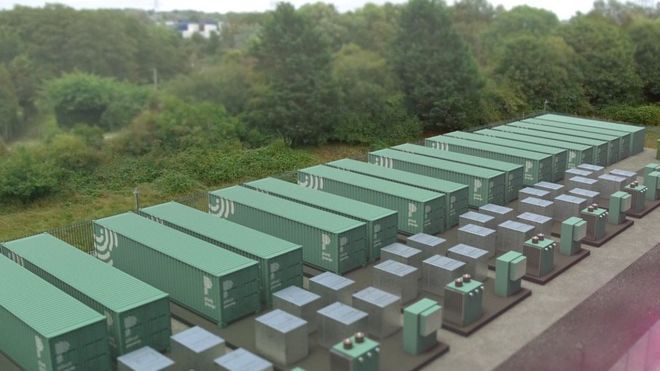Pivot Power has said it wants to work with the EV charging sector and deliver it scalable power infrastructure following its acquisition by EDF.
Speaking to Current±, Pivot chief executive Matt Allen said that the deal had been in the works since the start of the year, with talks initially exploring how the company could raise funds to pursue a much-publicised, 2GW-strong pipeline of energy storage assets.
But as those talks progressed, it became clear the two companies were aligned and the “synergistic fit” of an acquisition suited both parties.
Despite the acquisition, it is still very much business as usual for Pivot Power, Allen explained, with the 15-strong team looking to progress the company’s development pipeline. Two projects are on track and due to be commissioned towards the end of next year, with a further eight having received planning consent already.
EDF, for its part, are bring a “tremendous amount of experience in storage” to the table, Allen said. He points in particular to the West Burton project, owned and operated by EDF and supported by a lucrative Enhanced Frequency Response (EFR) contract, and stresses that EDF’s experience and scale in development, construction, financing and operation in storage stands to benefit the company in the short-, medium- and long-term.
That assistance could well extend to personnel. Allen says there will “absolutely” need to be more resource at the firm as it looks to grow, and discussions have already taken place internally as to how that happens.
“One of the things we’ve been talking about a lot over the last few months as we’ve advanced in this opportunity is how do we leverage all the incredible experience and capabilities on the EDF Renewables side,” Allen said, discussing whether direct hires into Pivot Power could occur as a result of the acquisition, or whether EDF resource is seconded over.
“It’s an important point, but of most importance is making sure we have access to that resource to deliver on our plans and our vision for the business.”
That vision is primarily focused on delivering the 40-asset, 2GW pipeline, however plans for additional projects are already being considered. This could also include plans for batteries larger than 49.99MW in size following the UK government’s announcement that it intends to relax planning regulations for energy infrastructure projects, allowing batteries in excess of 50MW to proceed through the local planning system.
That change stands to reduce planning costs of such projects by tens of thousands of pounds and allow them to proceed quicker. Allen said that the firm was keeping a watching brief on the policy tweak, opening the door for it to target more significant projects in the future.
Also of interest to Pivot is partnerships with EV charging infrastructure owners and operators. When Pivot unveiled its plans for a nationwide deployment of large-scale energy storage projects, it was always intended that these could be paired with EV charging points as those plans came to fruition.
Allen says the company now “very much wants to work with the [EV charging] industry” to provide it with “essential” power capacity that allows for such infrastructure to be installed.
Pivot’s infrastructure will allow for these installations to be tailored to specific site demand, be it bus depot charging or public rapid charger hubs, but also scalable, meaning that companies could turn to Pivot for its “first one or two megawatts”, as Allen explained, but also for future demands to cater for fleets or larger customer bases.
“We can offer that certainty, which is hugely beneficial for our customers,” Allen said.






